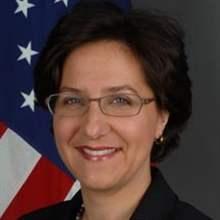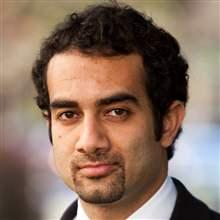Content from the Brookings Doha Center is now archived. In September 2021, after 14 years of impactful partnership, Brookings and the Brookings Doha Center announced that they were ending their affiliation. The Brookings Doha Center is now the Middle East Council on Global Affairs, a separate public policy institution based in Qatar.
Following confirmation that the Assad regime used chemical weapons in Syria, the Obama administration may send small arms, ammunition and potentially anti-tank weapons to the Syrian rebels. As the United States weighs its options, Foreign Policy at Brookings experts assess the situation in Syria and the Obama administration’s options going forward.
 Tamara Wittes
Tamara Wittes
Senior Fellow and Director, Saban Center for Middle East Policy
“Having apparently made the decision to provide lethal support to the Syrian opposition, the Obama administration must still make clear its ultimate interests and objectives. If the goal is limited to addressing the military imbalance to make way for a negotiated settlement, I fear they may be disappointed. For Assad, this is an existential struggle and the fighting will likely intensify. In addition, the more the sectarian aspect of the conflict deepens, the more existential the fight will be for Syrians on all sides of the conflict. The likely and unintended result? Making a negotiated peace very hard to achieve and creating a situation where the post-conflict phase will demand an intensive international presence.”
 Michael Doran
Michael Doran
Senior Fellow, Saban Center for Middle East Policy
“President Obama has been extremely reluctant to get involved in Syria. But the combination of chemical weapons, pressure from allies, including the British and French, and the recent victories on the battlefield by Hezbollah have forced the president’s hand. In addition, there was a growing awareness in Washington that the Geneva II conference, the flagship of America’s Syria policy, would never take place without a greater commitment by the United States to strengthening the rebels.
“It remains to be seen, however, exactly what the United States has in mind when it says it will increase “the scope and scale” of aid. Leaks to the media suggest that this aid includes weapons, but as of yet we have no clear idea of exactly what the president has in mind. The provision of weapons alone is unlikely to drastically change the balance of power on the ground. What is needed, at a bare minimum, is a robust program of training and equipping the opposition, coupled with significant support in the areas of strategic planning, intelligence, and logistics. It is doubtful if at this stage the administration is considering such a broad package.”
 Daniel Byman
Daniel Byman
Senior Fellow and Director of Research, Saban Center for Middle East Policy
“Regime change is the only way to end this conflict. And to go further, the United States wants this regime to fall. By comparison, regime change in Egypt was the right thing to support diplomatically and in terms of U.S. values, even though we were betraying an ally nonetheless. It was also a big strategic risk, but an important one to take. In the case of Syria, however, the U.S. would be undermining an enemy. The Obama administration has been slow to recognize that difference and has shown a preference for pursuing stability instead of making a full commitment to regime change.
“In addition, I increasingly worry that the opposition will turn on itself, should it ever start to truly triumph. Its inability to unify after over two years is staggering. At the height of the Libyan revolution, many in the U.S. administration complained about how poorly united the Libyan opposition was. Now Obama officials are saying, ‘if only the Syrians could be like the Libyans,’ reflecting how low the expectations have become for the opposition forces. If nothings else at this point, the U.S. needs to arm and train the Syrian rebels in order to create a stable post-Assad Syria. After Assad falls, there may be a fight among the opposition forces, and I would think the Obama administration would want someone who is not Jabhat al-Nusra to take power.
“It may be too little, too late in terms of really affecting the military balance or, for that matter, scoring points with the Syrian people who will wonder why it took 90,000 dead for the United States to become more involved in the conflict. And as in Libya, the administration seemed to have waited until the forces it is backing are losing before becoming directly involved. But only by becoming involved can the U.S. help manage spillover of the conflict in the wider region and enable the U.S. to deal with a post-Assad Syria.”
 Shadi Hamid
Shadi Hamid
Fellow and Director of Research, Brookings Doha Center
“By itself, arming the Syrian rebels is unlikely to tip the balance in their favor. It might have made a difference a year ago, but, today, the Assad regime – particularly after re-taking Qusayr – has the advantage. With that, it is no surprise that Assad seems as confident as ever and, put another way, that the rebels are losing. At this point, a much more concerted effort is required for the Syrian rebels to regain momentum. That effort likely now would have to include the use of surgical airstrikes and the establishment of no-fly and no-drive zones.
“It is worth putting the Obama administration’s decision into perspective. The U.S. will provide small arms and ammunition but not the more advanced weaponry that the rebels have been practically begging for. So not only is this a half-measure, it’s a particularly weak half-measure. I worry that the Obama administration is doing this largely because of domestic and international pressure, and not because there’s any real strategic vision or a re-think of what its wants to accomplish in Syria.”
 Bruce Riedel
Bruce Riedel
Senior Fellow and Director, Brookings Intelligence Project
Center for 21st Century Security and Intelligence
“The United States is about to start arming and training the Syrian rebels fighting to overthrow the brutal dictatorship of Bashar al-Assad. If done well, this move can end a bloody civil war. If done poorly, it could lead to disaster. Will Obama and his team do the right thing?”
“It turns out Afghanistan of the 1980s is a terrific test case for how to handle the Syrian rebels. The Afghan mujahedin then and the Syrian rebels now both seem incapable of forming a broad national consensus or an effective united political and military organization. Both have a significant component of hard-core Islamist extremists in their midst who are fundamentally opposed to American interests. But both also have a legitimate cause that deserves our support. The issue is how to help wisely.”



Commentary
Syria, the U.S., and Arming the Rebels: Assad’s Use of Chemical Weapons and Obama’s Red Line
June 14, 2013